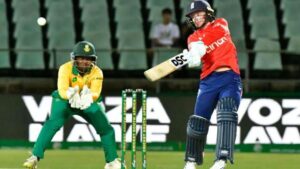England’s fix-ups – what’s on Borthwick’s to-do list this winter?
After an autumn in which progress seemed to stall, which areas do England need to focus most attention on before the Six Nations?
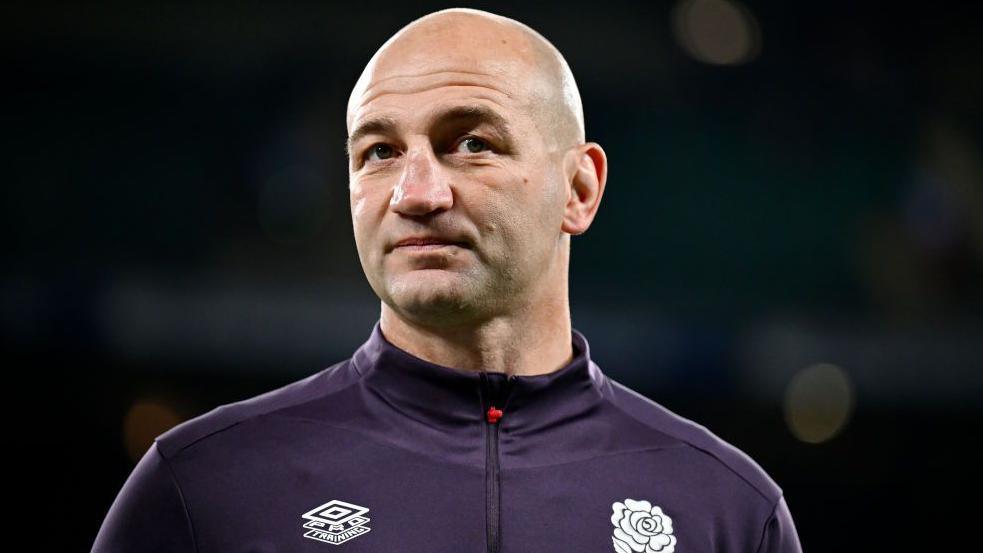

Five wins from 12 Tests. Five unanswered defeats against Rugby Championship sides. A world ranking that has slipped from fifth to seventh over the course of 12 months.
The numbers have not been what England wanted. After a run to the Rugby World Cup semi-finals in 2023, the hope that England would find stability and identity in 2024 has not been realised.
Instead, with a little over two months to go before a mammoth Six Nations start away to Ireland, head coach Steve Borthwick has a host of reparis to run on his side.
The results business
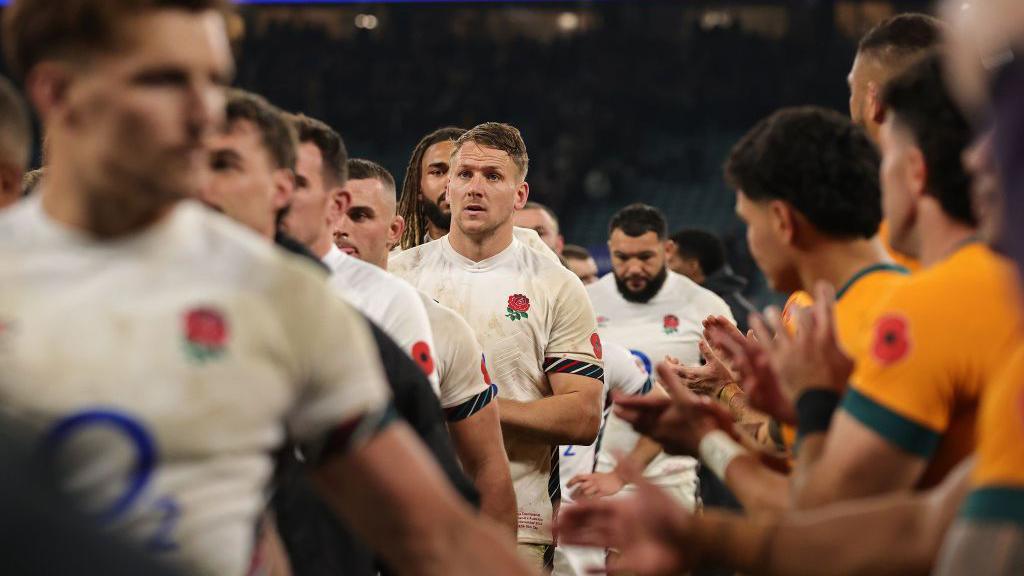
For much of their France 2023 campaign, the message from England’s camp was to focus on their results. As a string of scrappy displays pushed them though the weaker side of the draw, past Samoa, Japan and Fiji, staff stressed that victory was everything.
In a knockout tournament, with limited build-up under a new coach, they were right.
But too often this year, the opposite has been true. England have been emphasising performance positives beneath a negative scoreboard.
England’s win over Japan ended a run of five straight defeats, but opening fixtures against Ireland and France in the Six Nations mean they will have to improve fast if it is not to be a brief blip in a losing streak.
-
-
15 hours ago
-
Borthwick vowed after the summer tour of New Zealand that England would get on the right side of narrow scorelines. So far, turning those losses into victories has been an alchemy beyond England.
“The next step for this England team is to work out how do you win the Six Nations,” said former England fly-half Paul Grayson on Rugby Union Weekly.
“How do you get over the hump of playing Ireland away? Coming close against them or this France side is OK, but the next step is you have to beat those teams.
“You don’t have to win a Grand Slam but you have to be in the conversation to win the championship in the last round.
“England have not been in that position in recent times and genuine progression is knocking on the door for silverware.”
With the draw for the 2027 Rugby World Cup to take place in early 2026, a rise up the rankings in 2025 would be timely.
England’s current position means being paired with a higher-ranked team in one of the six four-team pools in Australia.
The case for a defence
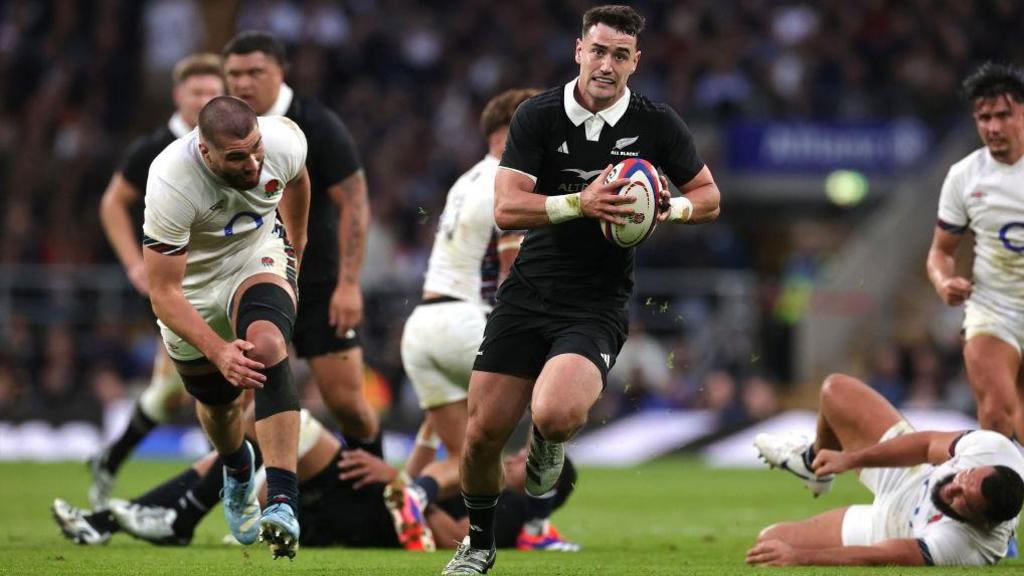
Captain Jamie George has dealt with a difficult autumn with honesty.
Asked whether defence was the biggest problem to fix before the Six Nations, he didn’t duck.
“If I’m honest, yeah,” he replied.
“We’re pretty clear on how we want to be but executing it… I think we’re probably 80% of the time doing it and 20% of the time we’re not. We need to find a solution as to why.”
England conceded an average of four tries a match across their autumn meetings with New Zealand, Australia and South Africa.
Even Japan, well off the world’s elite currently, scored two, unlocking an apparently well-set England defence with alarming ease.
The Brave Blossoms ended the match having made more metres with ball in hand, and having matched England for line breaks, with six each.
Overall, of 10 Rugby Championship and Six Nations teams, only Argentina and Wales have conceded more points each time the opposition enter their 22m this year than England.
“England just get done in defence too easily,” added Grayson. “Japan didn’t have a lot going for them other than energy and some decent shape.
“They were underpowered in virtually every element on the field and still conjured up line breaks.”
England have seemed set on a high-tempo defence system, based on line speed and applying pressure to the opposition’s skills.
Are these just inevitable teething problems as it beds in? Or is it fundamentally unsuited to England’s players and the amount of time they spend together?
Keeping the coaches
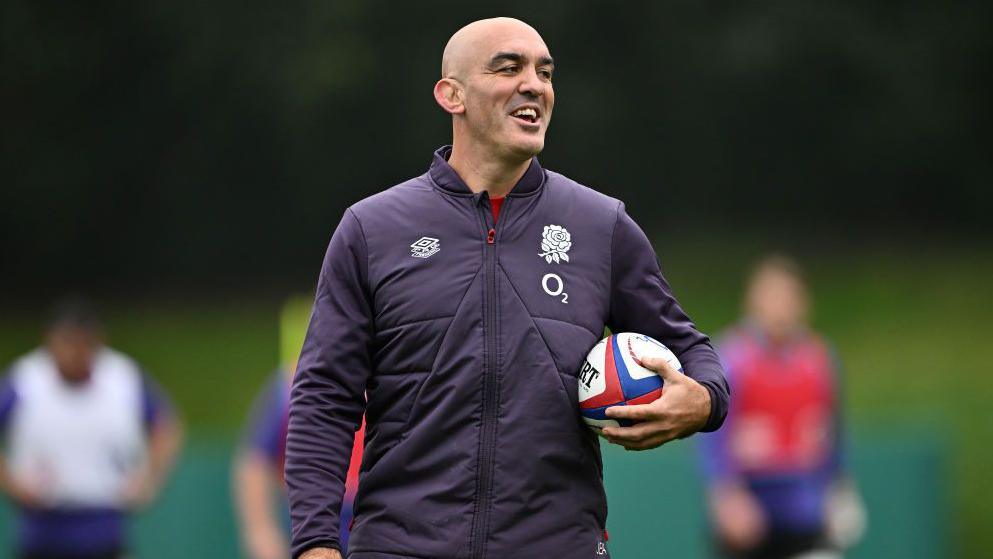
Joe El-Abd is the man tasked with finding answers to those questions.
The 44-year-old, a former university housemate of Borthwick’s, has been in place as defence coach for a little over a month.
But, now the autumn internationals are over, his focus is elsewhere.
On Friday, he will be fulfilling his head coach duties for French second-tier side Oyonnax against Stade Montois as part of a job-sharing agreement struck by the Rugby Football Union.
The unusual arrangement is partly a product of the haste with which the RFU needed to replace Irishman Felix Jones who quit as defence coach in August, after only seven months in the post.
With Jones being held to a 12-month notice period, England are left in the situation that they have two defence coaches on the books; one, with no previous international experience, juggling two jobs, the other, with experience of winning back-to-back Rugby World Cups, seemingly under-employed as he remotely feeds into England’s analysts.
“Joe El-Abd’s appointment was left field and his team [currently 14th out of 16] is not doing that well in the second division of France,” said former England wing Chris Ashton on Rugby Union Weekly.
“He is part time and England’s defence is not looking great.”
Grayson believes the situation is in part of England’s making, with change the only constant in the coaching set-up, two years on from Borthwick replacing Eddie Jones.
“There has been so much change with England in terms of backroom staff that it is very difficult to stay on message when the message changes all the time,” he said.
“How can you get consistency?
“And do you get any dispensation for the amount of change? Or do you look and say why have those people gone?
“Clearly in any business the turnover of that many staff will have an impact on the output of the people doing it.”
Making the most of Marcus
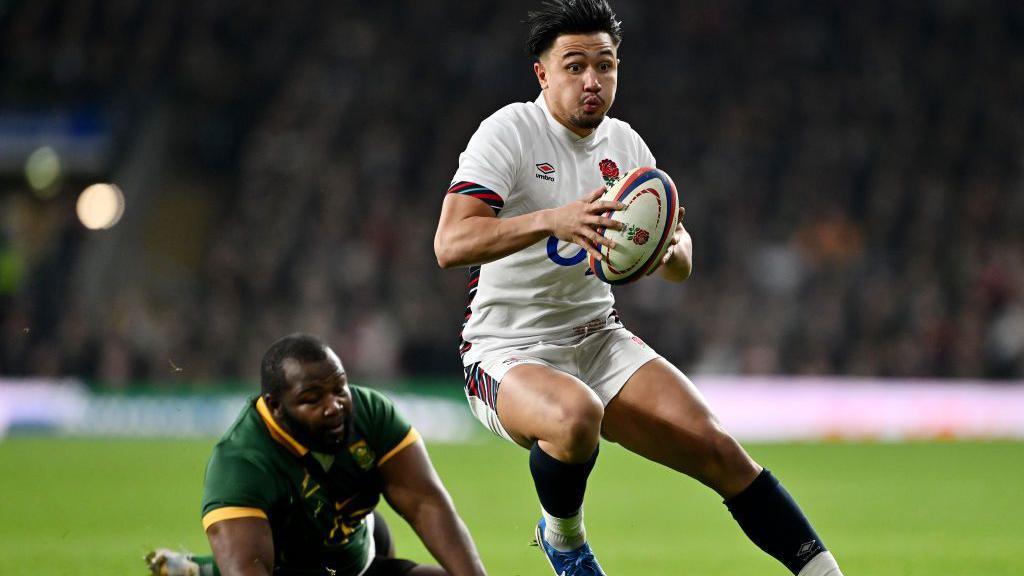
Marcus Smith has been the creative force behind England this autumn. The fly-half is first receiver and the first point of call when England need inspiration.
Only New Zealand’s Beauden Barrett and Japan’s Dylan Riley have been involved in more tries for top-tier Test nations than Smith this year. The Harlequins star is also a dazzling running threat.
New Zealand’s Mark Telea, France’s Damian Penaud, Japan’s Malo Tuitama and Scotland pair Duhan van der Merwe and Kyle Rowe, all wings, are the exclusive club to have topped Smith’s rate of beating 4.5 defenders every 80 minutes in 2024.
But, overall, England’s attack, lacking fluidity and accuracy, has not come alive under him.
Whether that is Smith’s fault, his team-mates’ or a combination of both parties and a clash of styles, is difficult to unravel.
Ben Youngs told the For the Love of Rugby podcast that England actually improved in some aspects of attack with Northampton’s Fin Smith at 10 and pondered whether Marcus might suit the team better at full-back.
His fellow former England scrum-half Danny Care – Smith’s Harlequins half-back partner – disagreed.
“The attack will take time,” he told Rugby Union Weekly.
“The backline have had those four games now which is perfect, so they know what went well and what didn’t.
“I think England have the potential to have one of the best backlines in the world with time and the guys they’ve got.”
Smith has become such a firm favourite of the Twickenham crowd, with the prospect of his being replaced raising murmurs of discontent in the loss against Australia, it would be a big decision to shift him out of the 10 spot, never mind bench him.



